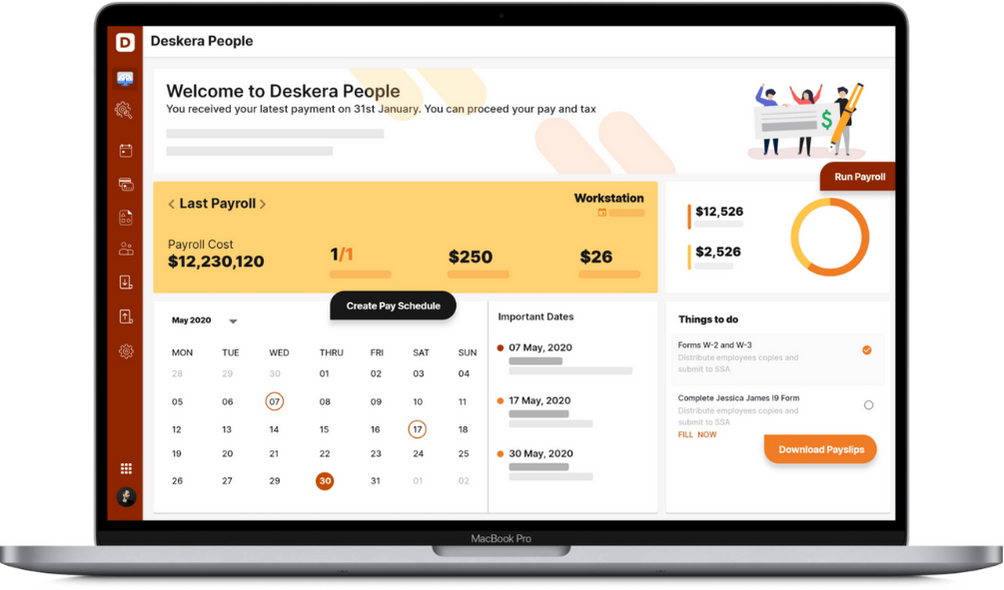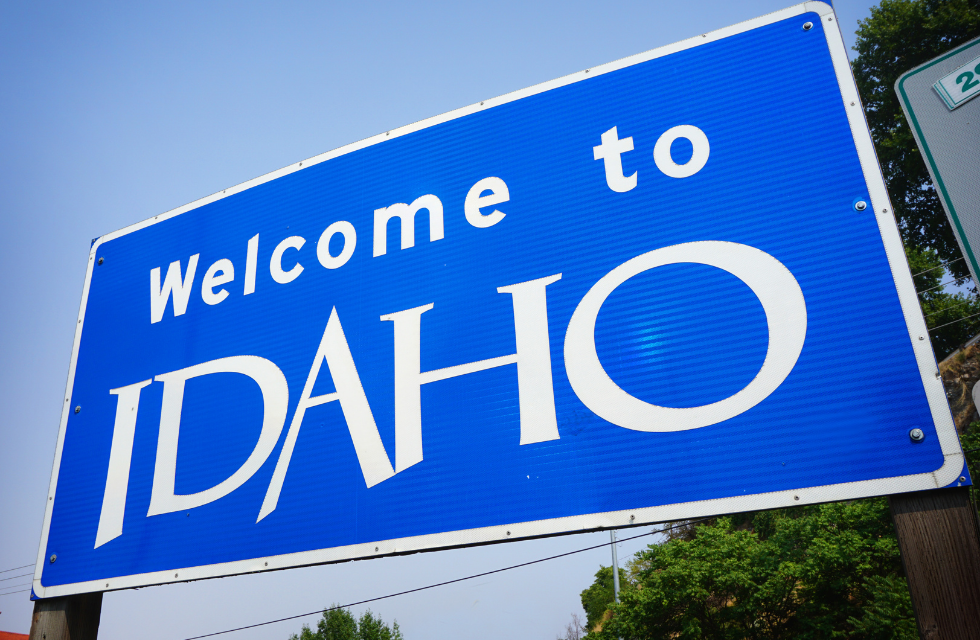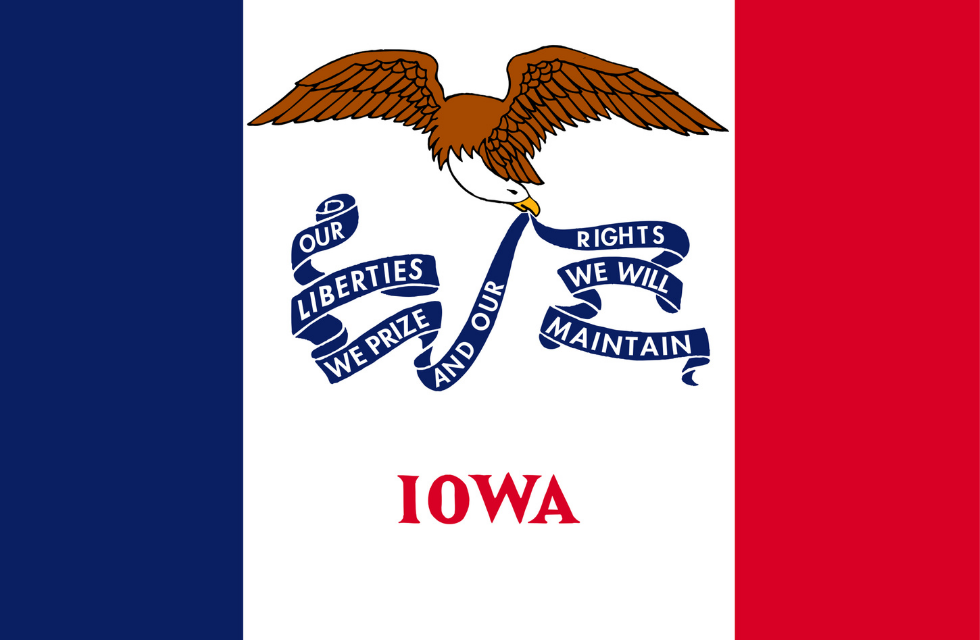Everyone is aware of the impact of corporate income tax, but payroll taxes (or the employment tax is for business owners and employees. It often surprises them as one mistake can bring the whole thing down. Payroll taxes are very complicated and can't be mistaken. Over the years, we've seen many cases where entrepreneurs faced extreme consequences of neglecting planning and payroll taxes management throughout the year.
Procrastination is attractive, but it can cause major problems if you don't work with an expert to remove its administrative burden and ensure that it's handled correctly. Iowa is a place where dreams come true. It welcomes approximately 100,000 visitors and promotes many small businesses.
But no matter how you earn your business when running a business, you need to pay the payroll taxes. You and all your employees in all federal and state states should learn about the Iowa payroll taxes. You can conveniently use the Payroll taxes calculator just by entering the employee's salary and W4 information, and you can calculate the rest.
Table of Contents
- Iowa Payroll Laws, Taxes, Regulations
- Reciprocal agreement
- How the Iowa Paycheck works
- How employees can keep a track of their Payroll Taxes
- A step-by-step guide to payroll in Iowa
- Unemployment insurance
- Workers' Accident Compensation Insurance
- Iowa Minimum Wage Law
- Iowa Overtime Regulations
- Various Payment Methods
- Salary method
- Final Payroll
- Iowa Personnel Law Affecting Salaries
- Paid leave and lack of illness
- Timeout for voting
- Recruiting minors
- Certificate of withholding tax for employees
- Iowa Payroll Taxes Resources / Sources
- Conclusion
- Key Takeaways
Introduction
To process your salary in Iowa, you need to follow some common steps, such as enrolling in state unemployment insurance (called SUTA) or workers' accident compensation insurance. You have to withdraw money from employee salaries due to state income tax, and you need to pay close attention to the calculation-they are gradual or flat in the range of 0.33% to 8.53%.
Iowa Payroll Laws, Taxes, Regulations
- Regardless of which state you are in, you must comply with federal income tax, social security and Medicare law, and federal unemployment insurance (FUTA)
- Social security and Medicare account for 6.2% and 1.45% of each employee's check, respectively. FUTA is typically 6% of each employee's health check and costs up to $ 7,000
- Iowa tax Iowa taxes range from 0.33% to 8.53%. Unemployment insurance tax ranges from 0% to 7.5%. State income tax Iowa has a tier-based income tax system. You can find the tax rate table online or use the Iowa withholding formula for paid wages to determine how much you should pay
Reciprocal agreement
Iowa has a reciprocal agreement with Illinois. Wages or salaries paid to Illinois residents working in Iowa are taxed only in Illinois, not Iowa. These employees are required to complete Form IA 44016, a statement regarding non-residents of employees in Iowa. You do not have to file a withholding tax on these employees.
How the Iowa Paycheck works
- When you are employed, you must fill out the W4 form and the information on that form will tell your employer how much tax to withhold from each of your salaries
- Regardless of how often your wages are paid out, your employer will deduct federal income tax from your wages. This money is sent to the IRS, which uses it for annual income tax
- Several factors affect tax withholding. Your family and registration status play a big role. Whether you are single or married; submit jointly or individually. Also, whether or not you declare as a householder all affect the scope of your income tax. If you qualify as a common-law couple, you also have the option to file them together. If you have eligible dependents, this can also affect your billing for the next tax season
- The new W4 has a five-step process that requires applicants to spend an annual amount to declare additional income, rather than using allowances
- Employers withhold 1.45% of Medicare tax salary and 6.2% of social security to make up FICA taxes
- If you earn more than $200,000, you will have to bear a surtax of 0.9% Medicare.
- FICA taxes are double the rate that you pay as your employer contributes an equal amount
- A self-employed person will have to bear the full amount of 2.9% for Medicare and 6.2% for Social Security
How employees can keep a track of their Payroll Taxes
- There are several ways to optimize Iowa's salary. It is recommended to check the W4 form every year. If you get a tax refund, you may be paying tax refunds throughout the year. Some people are forced to save that money, so they may want a large refund once a year, but it's also good to have that money in your bank account all year round
- With company benefits, the size of your salary changes. For example, if you buy health insurance through your employer for yourself and your spouse, those premiums will be paid from your salary. Your employer may also offer a temporary tax credit
- The money you deposit into these accounts comes from your pre-income tax salary, so the portion of your salary that is subject to income tax is low. Examples are Health Savings Accounts (HSA) and Flexible Expenditure Accounts (FSA)
- FSA rolls over only $ 500 each year. Therefore, if you do not use the deposited money, you may lose it
- Other pre-tax contributions to consider are related to retirement accounts such as 401 (k) or 403 (b). If your employer offers the right program, you should specifically consider one of these accounts
A step-by-step guide to payroll in Iowa
Step 1: Set up your company as an employer. At the federal level, you will need a Federal Employer Identification Number (FEIN) and an electronic Federal Taxation System EFTPS.
Step 2: Register with Iowa
Register your business with the Iowa Revenue Department. This can be done online, but FEIN is required and Iowa State University's employer ID number must be registered. You also need a myIowa UI account to pay for SUTA.
Step 3: Set up the payroll process
You can set up a regular payday plan, at least as long as you pay monthly. You also need to determine when to collect salary forms, how to pay employees, and how often you need to file taxes.
Step 4: Collect employee payslips
It's best to fill out a payslip form while an employee is onboarding. The form contains W4, I9, and direct deposit information. For Iowa, employees must complete Iowa W4. Residents of Illinois who wish to be exempt from Iowa taxes must complete Form IA44016.
Step 5: Collect, review and approve timesheets
Step 6: Calculate salary and disburse payment for employees
You should be familiar with the tax rates and other information required for your payslip.
Step 7: File payroll taxes
Follow the IRS instructions file by 4 p.m. on the due date.
Iowa Income Taxes: To file and pay withholdings, use Form 44095b.
- If the number of withholdings filed is quarterly is less than $6,000, you must follow SUTA due dates
- If the number of withholdings filed monthly ranges between $6,000 - $120,000, you must file each by the 15th of the following month and file the annual reconciliation form by Feb 15
- If the number of withholdings filed is semi-monthly is more than $120,000, you must file twice a month electronically by the 25th and the 10th of the following
Step 8: Document and save your payslip
At Iowa, you need to keep employee records for 5 years. The information should include contact information, name, social security number, working days and weeks, and income per working period.
Step 9: Create a year-end payroll taxes report
Federal Annual Forms W2 and 1099 for employees and contractors respectively must be mailed by January 31 of the year following the reporting year. You must also submit a copy and confirmed Payment Summary Report (VSP) by February 24th to the Ministry of Finance of Iowa.
Unemployment insurance
If you have at least one employee, you will need to register and pay for unemployment insurance. You must be registered on the Iowa Workforce Development website at myIowaUI.org within 30 days of hiring an employee.
- Iowa collects SUTA tax on wages up to $ 32,400. The rates range from 0% to 9%, with a new employment rate of 1% and a new construction employment rate of 7.5%. It is divided into 21 ranks determined by the benefit ratio. It is the calculated five-year average of payments divided by the five-year average annual taxable salary
- If any of the former employees claim an unemployment allowance within 40 days of the end of the calendar quarter, IWD will send a notification of the allowance paid to that employee and the amount you have to pay
- If you pay SUTA, you may be eligible for a refund of up to 5.4% of federal unemployment insurance tax
Workers' Accident Compensation Insurance
All Iowa companies that employ workers are required to pay workers' accident compensation, with the following exceptions: If the cash salary in the calendar year before the injury is less than $ 2,500
You must pay workers' accident compensation insurance for the directors of your company. Form 140061 allows an exemption for officers - President, Vice President, Secretary, Treasurer). The family business is exempted without filling out the form. You can take out workers' accident compensation insurance from a private insurance agency. If you want to take out self-insurance, you need to apply to the Iowa Workers Compensation Division (DWC).
A group of employers can set up their insurance association and pool resources for self-insurance for each member. The self-insurance company appoints a representative who lives in Iowa and is familiar with the Iowa Workers' Compensation Act. This person must be registered with DWC.
Iowa Minimum Wage Law
The minimum wage in Iowa is $ 7.25 per hour. Employees who earn $ 30 or more per month can only earn $ 4.35 per hour as long as the tip reaches the minimum wage. (If not, you need to make up for the difference.)You can pay an initial wage of $ 6.35 for the first 90 days. This is different from federal training wages.
If you rehire an employee, you will not be able to use the wage again. Employers who generate at least $ 300,000 in annual sales or business must comply with the Minimum Wage Act. Construction companies, authorities, hospitals, medical centers, and schools must also comply with this.
Iowa Overtime Regulations
Iowa is compliant with federal overtime law. Under this law, overtime and non-overtime workers are required to pay 1.5 (one and a half hours) of their normal wage if they work more than 40 hours a week. To always pay your employees correctly, read the article on how to calculate overtime.
Various Payment Methods
Employees in Iowa can request a direct deposit of wages if an employee is hired after July 1, 2005. The cost of opening and maintaining an account does not lower the employee's minimum wage and the employee does not receive direct deposits.
There are no union contracts that are charged and prohibit compulsory direct deposits. Otherwise, you can pay by cash or check. The employee's written consent is required to mail the salary. You can also pay a prepaid debit card with the employee's consent if it is available before the payday and the employee is not charged for the income.
Salary method
Employees are required to receive a payslip with details of working hours, wages earned, and deductions for each payday. The employee's written consent is required to send the payslip.
Minimum payment frequency
Iowa allows you to set how often you pay, but you must pay at least regularly, at least monthly. It must be paid to workers within 12 days after the end of the payment period. If you have employees who receive commissions, you can pay a written contract for commission wage credits. These credits must be paid at regular intervals of less than 12 months.
Wage deduction rules
Iowa allows deductions for taxes, ornaments, and employee benefits such as 401 (k), and health insurance (with employee consent). The register is not cash deductible, damaged or damaged, lost or stolen property, or personal protective equipment.
Final Payroll
Employees must be paid by the next regular payday, regardless of whether they are dismissed or retired. If your employment contract provides paid or sick leave, whether you need to pay for unused time depends on the wording of the contract. Make sure the contract is clear.
Iowa Personnel Law Affecting Salaries
The Iowa Personnel Law is simple and often modeled under federal regulations. Report new hires within 20 days of hiring or rehiring. You must register and report to the Human Services Department website.
Paid leave and lack of illness
Iowa does not require paid leave or lack of paid illness. These policies need to be established through employment contracts. Iowa Family Vacation Law Iowa is compliant with the Federal Family and Medical Leave Act (FMLA), which allows up to 12 weeks of leave per year, or 26 weeks of leave for military nurses.
Timeout for voting
If the polling place does not open and closes for three consecutive hours, you should give authorized staff time to vote. However, employees must apply for this leave-in writing and pay for the trip before the election day.
Recruiting minors
- Iowa law stipulates that even migrant workers cannot work without compensation. Children under the age of 10 need a court order to obtain a work permit and they can only work in a very limited profession. A work permit is required for children aged 10 to 15 years. People under the age of 14 are restricted to certain street activities such as immigrant labor and newspaper sales
- For immigrant laborers, their working hours are limited to 5 am to 7:30 pm
- For road construction, working hours are from 4 am to 7:30 pm
- Children under the age of 14 are not allowed to work during school hours
- Children between the ages of 14 and 15 can work from 7 am to 7 pm
- Workers' Day until June 1st and 9 pm during the summer. They can only work while at school as part of a dual learning course, or if they are out of school or enrolled part-time
Certificate of withholding tax for employees
This must be completed with Federal Form W4 during the employee deployment process. Other Iowa Salary and Tax Forms
- IA44016: Employee Declaration for Non-Iowa Residences
- Form 44895: Iowa Quarterly Withholding Tax Return and Instructions
- Form 140061: Workers Directors of Specific Companies Worker Disaster Compensation Form Exempt from Disaster Compensation Iowa Revenue Department Form Page. This site contains forms for individuals and businesses. Federal Salary Form
- W4 Form: Helps employers calculate taxes withholding from employee salaries
- W2 Form: Report total annual wages earned (one for each employee)
- W3 Form: Report total wages and taxes for all employees
- Form 940: Report Calculates unemployment tax payable by IRS
- Form 941: Report quarterly income and FICA tax withheld from salary
- Form 944: Report annual salary and FICA tax withheld from salary
- Form 1099: Provides information on non-employee wages to help the IRS collect taxes on contract work
Iowa Payroll Taxes Resources / Sources
- Labor Sector / Child Labor: Summarizes state laws governing the employment of minors and instructions for children applying for work permits
- Iowa Revenue Department: Information on Corporate Registration One-stop shop for all kinds of tax payments
Conclusion
Iowa imposes income tax on a gradual system and has state unemployment insurance. Workers' compensation requirements can be met by forming a co-operative with a private insurance agency, self-insurance, or other self-insurance company. Holiday and illness rules are governed by federal law.
How Can Deskera Assist You?
As a business, you must be diligent with employee leave management. Deskera People allows you to conveniently manage leave, attendance, payroll, and other expenses. Generating payslips for your employees is now easy as the platform also digitizes and automates HR processes.

Key Takeaways
- Every state in the US has its payroll taxes system that is controlled and monitored by the IRS
- Every employee needs to fill out the W-4 form and submit it to the authorities which carry appropriate information about the employee and the employer
- There are certain conditions, rules, and regulations which should be met while filing Iowa payroll taxes
- Iowa has a reciprocal agreement with Illinois. This means that if your company is based in Iowa and you want to pay an employee who lives in Illinois, you need to calculate the tax based on your place of residence. The reverse is also true
Related Articles












